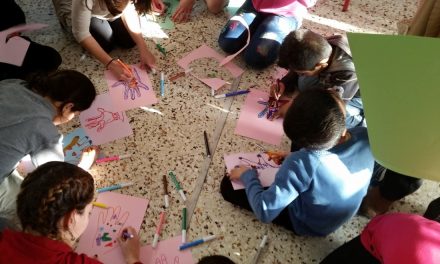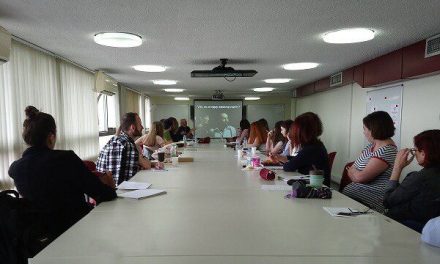The web portal Study in Greece is campaigning for the promotion and international visibility of Greek Universities and the comparative educational advantages of our country. In particular, the campaign focuses on the foreign language study programs that Greek Universities offer to Greek and international students. The initiative is supported by the General Secretariat of Higher Education of the Ministry of Education and Religious Affairs and the General Secretariat for Greeks Abroad and Public Diplomacy of the Ministry for Foreign Affairs. In this context, a number of educational programs and actions are presented in detail on a regular basis, such as undergraduate and postgraduate programs, summer schools etc, to inform international students about the many foreign language options offered by Greek Universities.
Study in Greece interviewed Professor Dionysios Christopoulos, Director of the MSc in Machine Learning and Data Science offered at the Technical University of Crete on the program, its features and what it has to offer to international students.
Dionysios Christopoulos is Professor in the School of Electrical and Computer Engineering at the Technical University of Crete and the Director of the MSc in Machine Learning and Data Science Program (MLDS). He teaches courses in Probability, Statistics, Geostatistics, Time Series, and Random Fields and he has co-authored 202 publications (journal articles, conference proceedings and abstracts, and technical reports) as well as the books Spatiotemporal Environmental Health Modelling (Kluwer, 1998) and Random Fields for Spatial Data Modeling (Springer, 2020).

Dr Christopoulos, please tell us what unique features or aspects distinguish the MLDS program from other similar programs in the field?
The MLDS program offers a well-focused, state-of-the-art curriculum that involves hands-on learning. Our faculty hold doctoral degrees from esteemed European and American universities, and most of us have held academic or research positions in North America or Europe. We spend time with students outside the classroom as they work on their capstone projects. Seminar talks given by researchers from universities, research institutes, and industry provide students with networking opportunities. The tuition fees are very competitive: the entire program costs 500 euros for residents of the European Economic Area (EU countries, Iceland, Liechtenstein and Norway) and 1,000 euros for non-residents. The program is offered only onsite in order to enable team building and interactions between students and faculty.
How does the MLDS program prepare students for careers in a globalized workforce, particularly in terms of international job opportunities?
The MLDS program enables students to meet with researchers from the academic world and the private sector as they attend MLDS research seminars, which can become networking opportunities. Supported by a faculty advisor, students complete and present a capstone project that combines tools and knowledge from different courses. Thus, they learn to synthesize what they have learned in order to solve problems and succinctly present their main ideas, their methodological approach, and the results they derive to a public audience—all essential skills in today’s job market. Furthermore, most of the MLDS instructors have studied, taught, and/or worked in international environments, and they share their experiences with the students.

What benefits does the presence of international students bring to the MLDS program and the university as a whole?
International students bring diverse perspectives, cultures, and backgrounds to the university. Thus, they contribute to a richer academic experience and help the local students broaden their horizons. In addition, their presence motivates the Greek students to learn to better communicate in English. The presence of international students fosters a dynamic learning environment that prepares all students for global challenges and opportunities.
How does the presence of international students contribute to the reputation and competitiveness of the MLDS program on both a national and international level?
Internationalization will help the MLDS program to gain wider visibility. Our goal is for international students to become ambassadors of the MLDS program in their countries. We also hope to build a global alumni network that will help MLDS graduates with international careers.

How does the department assess the effectiveness of its internationalization strategies and adapt them over time to address changing needs and priorities?
Although the MLDS program is only two years old, the department constantly searches for strategies to increase its international visibility. We start with word of mouth and announcements of the calls for applicants on social media platforms (e.g., LinkedIn, Facebook). In addition, the department participated in the NAFSA 2024 annual conference & expo, aiming to forge international alliances with universities outside Greece. We have established student exchange agreements with European universities in the framework of the Erasmus program, and we participate in the European University on Responsible Consumption and Production (EURECA-PRO). Recently, the Department also implemented an undergraduate student exchange agreement with the department of Electrical and Computer Engineering of the University of Southern California.
Are there targeted marketing or outreach efforts aimed at promoting the MLDS program to prospective international students, and if so, what channels are utilized?
Participation in the NAFSA 2024 conference as a member of the Study in Greece delegation was the most recent outreach effort. This event gave us the opportunity to reach a truly international audience. As mentioned above, we use social media to reach international audiences. We also advertise MLDS when we present our research at universities outside Greece. Finally, we maintain a dedicated program website (easily reached by typing “TUC MLDS” in a search engine box) which provides vital information and news about the MLDS program.
Applications deadline: August 31, 2024
TAGS: STUDY IN GREECE












